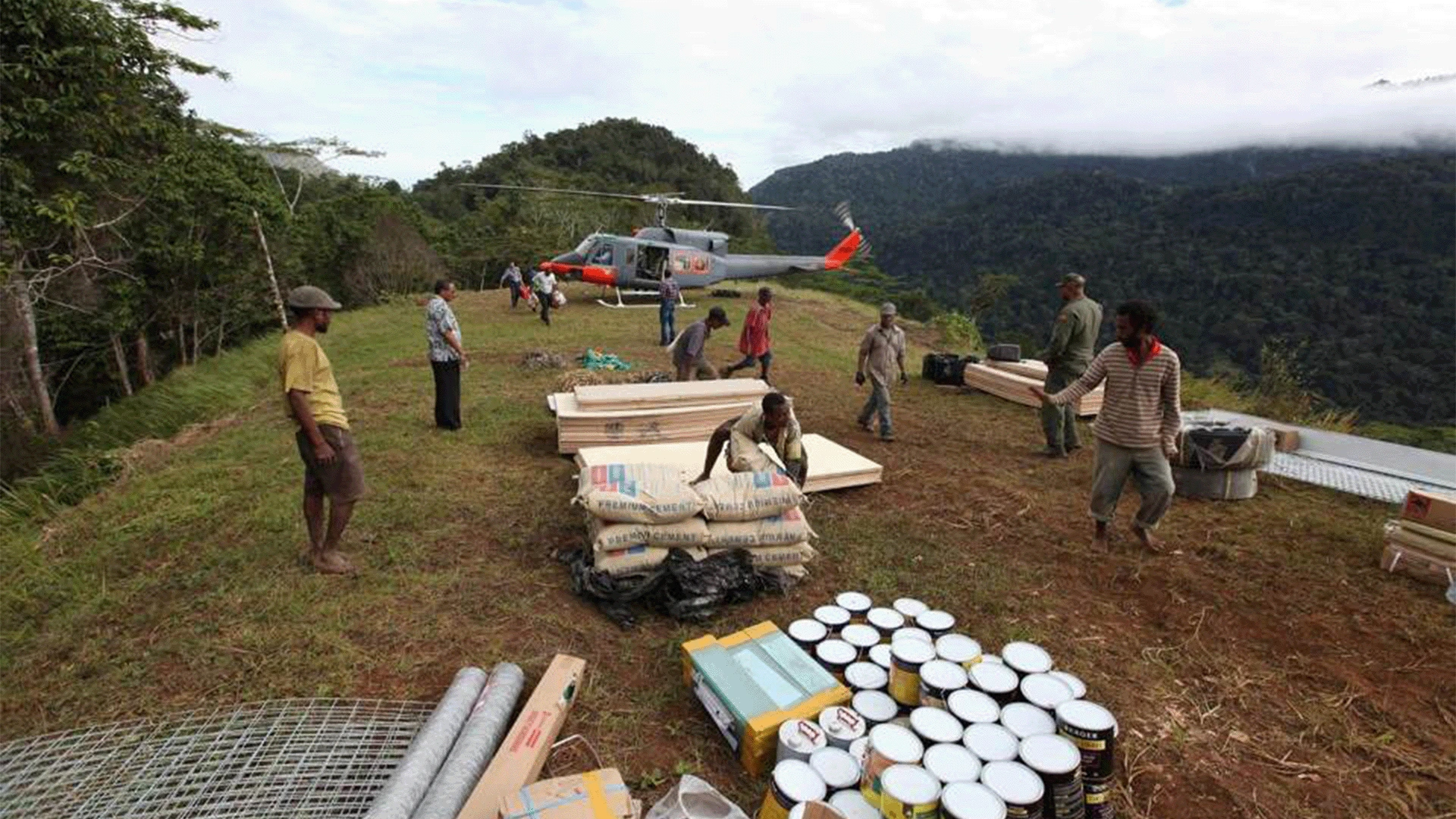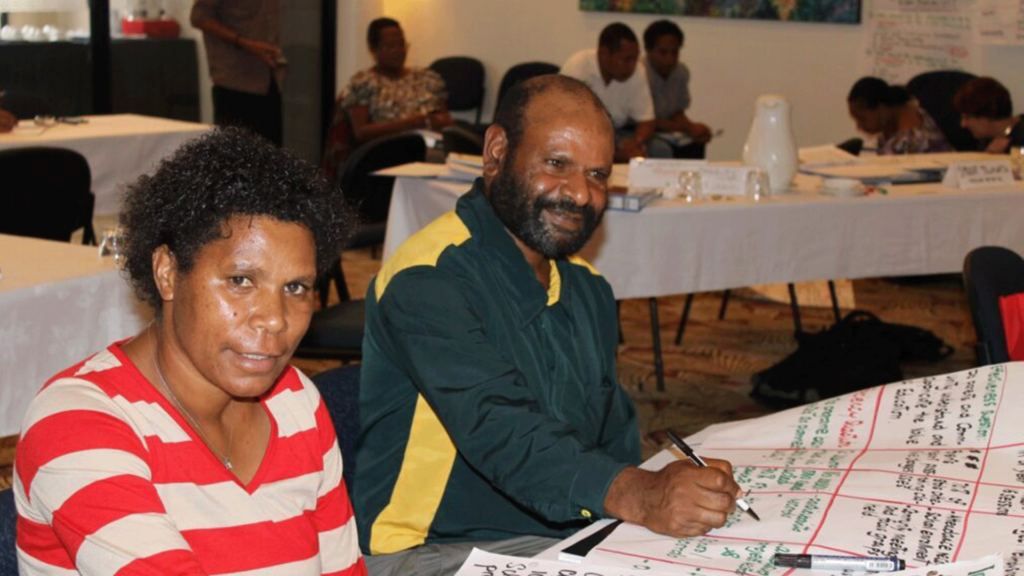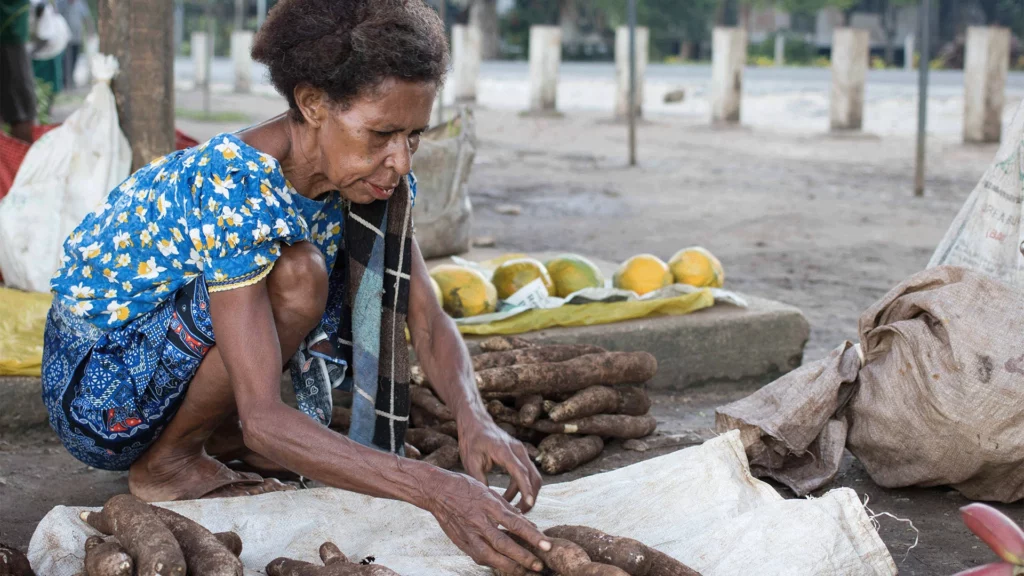
The Provincial and Local-level Governments Program in Papua New Guinea helped overcome the challenges of service delivery across the country by enhancing inter-governmental relations and processes by providing innovative responses within a dynamic political and economic environment.
Situation
Papua New Guinea faces a range of socio-economic barriers to economic growth, resulting in poor delivery of services. Much of the country faces severe poverty while communications barriers create more challenges, with 800 different dialects spoken by seven million citizens. The country also has a low life expectancy of 60 years, a high maternal mortality rate and an infant mortality rate of with 47 deaths per 1000 live births. The Government of Papua New Guinea, in conjunction with the Australian Government, aims to overcome these challenges by developing an effective and functioning public sector that delivers decentralised services to the people of Papua New Guinea.
Solution
The Provincial and Local-level Governments Program (PLGP), managed by Tetra Tech International Development from 2011 until 2016, worked closely with Papua New Guinea’s local-level governments to improve the support and quality of service delivery to the country’s men, women and children. The program, along with two other Australian aid programs managed by PLGP – the Kokoda Initiative Development Program and the Governance Implementation Fund – worked to enhance processes and inter-governmental relations in selected provinces, districts and insitutions across PNG to create a decentralised and effective public sector in order to enhance the lives of men, women and children across PNG.
The program was structured around three intervention strategies:
- Strengthen the capacity of sub-national administrations to manage the delivery of services
- Enhance the demand for improved service delivery while monitoring performance and accountability
- Promotion of the whole-of-government approach to decentralised service delivery.
The Governance Implementation Fund supported the peace process and aimed to help implement autonomy, improve good governance and implement public sector reform in the Autonomous Region of Bougainville.
The Kokoda Initiative Development Program supported the sustainable development of the Owen Stanley Ranges, Brown River Catchment and Kokoda Track Region. This work aimed to protect and conserve the area’s environment and cultural values and keep the Kokoda Track safe and well managed, with a particular focus on health, education and water sanitation initiatives.
Results
The nature of Papua New Guinea’s dynamic political environment required the program to be responsive, iterative and flexible in approach.
Innovations in both design and activities helped PLGP remain flexible, adaptable and ultimately successful. From advisers worked as facilitators rather than technical experts, working politically and documenting that knowledge through the PLGP Monitoring, Analysing, Learning, Evaluating and Reporting system, and analytical models for fiscal and non-fiscal performance such as Provincial Expenditure Reviews, Performance Monitoring Tool and Provincial Budget Model, PLGP provided innovative solutions and activities throughout its lifetime.
The program commenced citizen accountability initiatives in five priority districts that gave voice to people and their perceptions of government services, development policies and decision making processes, following on from successful pilots conducted by the Economic and Public Sector Program (EPSP), also managed by Tetra Tech on behalf of the Australian Government.
Together the Provincial and Local-level Governments Program, the Kokoda Initiative Development Program and the Governance Implementation Fund focused on four result areas.
Improved public financial management
PLGP provided advisory support to improve sub-national financing, budget and expenditure management, and monitoring and reporting, in national agencies including Department of Provincial and Local Government Affairs, National Economic and Fiscal Commission, and the Department of Implementation and Rural Development. PLGP also provided advisory support to the Provincial and Local Level Services Monitoring Authority to coordinate collection and analysis of financial and performance information across government provincial administrations.
Enhanced intergovernmental relations finance and funding
The program supported the National Economic and Fiscal Commission with advisory assistance and non-advisory technical assistance and provided independent advice to government on intergovernmental fiscal affairs, conducted budget practice reviews, costing studies, expenditure monitoring reviews and revenue reviews and worked closely with Department of Treasury, Department of Finance and the Department of Provincial and Local Government Affairs.
The Governance Implementation Fund worked directly with the Autonomous Region of Bougainville and the Government of Papua New Guinea and service delivery partners to build capacity to develop and manage approved program and project initiatives, guaranteed cash flow to project partners and enabled them to complete their projects while reducing fiduciary risk through management of the Fund’s trust account.
Increased health, education and infrastructure services
There was a significant contribution made by the Kokoda Initiative Development Program for a small population living across twenty-four wards and in a short period of time. Between 2011 and 2016, 18 primary school classrooms were constructed in 17 villages along the Track; a teacher’s house was built in six villages and each fully furnished; a health facility was constructed in each of five villages and renovation of health staff accommodation was completed in eight villages. Water and sanitation hygiene improvements were made in 19 villages.
Stronger economic and human development promotion
237 males and 200 female citizens of Manus Province completed small business training aimed at improving existing or new business activity. Economic opportunities were investigated in five PLGP priority districts and plans and strategies developed to enhance opportunities. The Commodity Support Facility was established in 2015 as a grant-making delivery mechanism to support and promote economic development in Bougainville. A total of 180 village health volunteers received initial or refresher training and 104 elementary and primary teachers upgraded teaching qualifications supported by Kokoda Initiative Development Program.
The Governance Implementation Fund Steering Committee worked with the private sector to support institutional strengthening and capacity building in the Autonomous Bougainville Government’s Department of Community Government, Bureau of Media and Communications, Department of Finance and the information and communication technology function of the Department of Technical Services.
Client
Australian Department of Foreign Affairs and Trade (DFAT)
Location
Papua New Guinea
Duration
2011 – 2016


